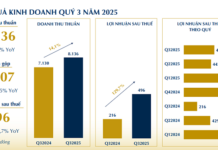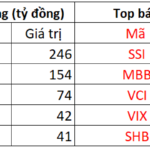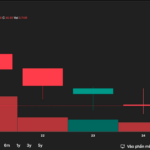Associate Vice President, Institute of Financial Economics, Academy of Finance – Dr. Nguyen Duc Do believes that in 2024, the inflation pressure is not expected to be significant due to the slow economic growth of the world, especially the United States and China. Vietnam’s exports in 2024 are also forecasted to grow moderately in the context of slow global economic growth. Furthermore, the real estate market is still facing difficulties, and the industrial-construction sector and the entire economy will also be affected and have low growth in 2024. If GDP growth in 2024 revolves around 6% as many forecasts suggest, the average GDP growth for the period 2020-2024 will only be 4.64%, meaning that the economy in 2024 will still be operating below its potential. This is a factor that restrains inflation. Therefore, the average inflation for the whole year of 2024 is forecasted to be around 3-3.5%, which is lower than the target set by the National Assembly at 4-4.5%.

Forecasted inflation this year is lower than the target set by the National Assembly
“Regarding inflation, in my opinion, this year it will revolve around 3% on average. In case Vietnam’s world economy grows well, it can reach 3.5%. But in the case of the US and the world economy entering a recession and raw material prices falling sharply, it can be around 2.5-3%. In general, inflation pressure is not significant because the current situation is not favorable for inflation, along with the successful inflation control policy of the State Bank of Vietnam over the past 10 years” – Dr. Nguyen Duc Do said.
However, to control inflation in 2024 to achieve the target set by the National Assembly, economic experts believe that the Government, ministries, sectors, and localities need to closely monitor the world situation, especially the inflation of major economies. From there, timely alerting to the risks that may affect prices and inflation in Vietnam to have appropriate countermeasures. Accordingly, ensuring supply sources, stabilizing prices domestically, and achieving the inflation control goal.
Economic expert Vu Dinh Anh noted: “In 2023, although the average price index increased by only 3.25%, if we exclude the factors of fuel and food, the core inflation or underlying inflation still exceeds 4%. Therefore, we need to pay attention to inflation caused by monetary factors in 2024, when there are two factors that can push up money supply significantly: the disbursement of public investment and the increase in credit with a target of 15% at the beginning of 2024”.





































